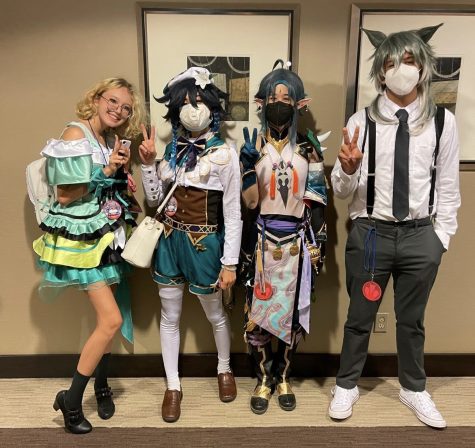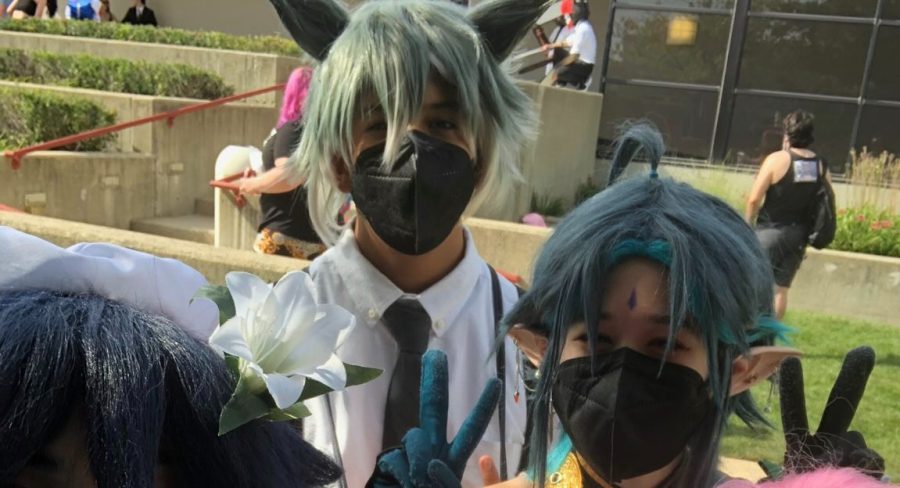Unpacking the stigma behind cosplaying
April 4, 2022
When Halloween’s around the corner it’s not uncommon to see your average joe in abnormal attire, they might swap out their t-shirts for tights, their converses for corsets, and their watches for wigs. It’s viewed as completely acceptable to present yourself to the world as something you’re not…as you do it on October 31st. But what happens if you choose to dress up on a different day? Well for starters, you may be faced with public backlash and labeled as “weird” Well, why is something that’s viewed as normal on Halloween suddenly become so stigmatized? For cosplayers, this is a question they have been asking for years.
Cosplay (A combined term for costume and play) has been around since the early 1980s. The practice is done in part to show appreciation for fictional characters by dressing up and acting like them. There are over five million cosplayers in America alone and the number is still growing, however, cosplaying is a subculture that is vastly scrutinized.
Freshman Sebastian Blanco has been ignoring the stigma since they began cosplaying. They have attended conventions like Comic-Con since they were young and though they were nervous when they first began, they have learned to embrace the “weirdness” of cosplaying.
“I had a couple of friends who are super into it and I kind of got roped into dressing up with him and our other mutual friends. I knew people would think I was weird but it’s just fun to meet other people who have the same interests as you while doing something you mutually enjoy. It’s also kind of fun to just put on a wig and some makeup,” Blanco said.

But for Blanco, cosplaying hasn’t come without its difficulties. They can recall an instance when their friend, freshman Atalus Minksy, was met with online bullying after uploading a video in costume.
“I was made fun of online for cosplaying, and it ended up happening in person too. I don’t think it’s fair, everyone has their hobbies, but not everyone is harassed because of them,” Minsky said.
According to a poll conducted by the Huffington Post, it was discovered that cosplayers are one of the most ostracized online communities, with almost a thousand cases of a virtual backlash against them occurring in the last year.
Criticisms against cosplay come from its opposition to the societal norm It’s easy for the general public to dismiss cosplayers as “freaks” or “immature,” for violating the societal order. However, in reality, cosplaying is a healthy act of self-expression that benefits millions of people.
“I think a lot of people judge cosplaying because have a lot of misconceptions about why people do it. A lot of people think cosplaying is just weird kids dressed up in costumes, but what we like–or a least what I like is that it gives me a creative outlet,” Minsky said.
Many aren’t aware of the positive effects of the hobby. Many cosplayers say the hobby offers them community connections, helps them feel visible, and creates buffers for psychological conditions like depression and social anxiety. Though many people view cosplaying as odd, it’s possible that without them we’ll lose the diversity that makes us so interesting. We’ll lose the “weird” people who remind us that being ourselves—our unique, authentic, weird selves, and cosplayers as weird as they may be are experts at being themselves– by doing the exact opposite.




